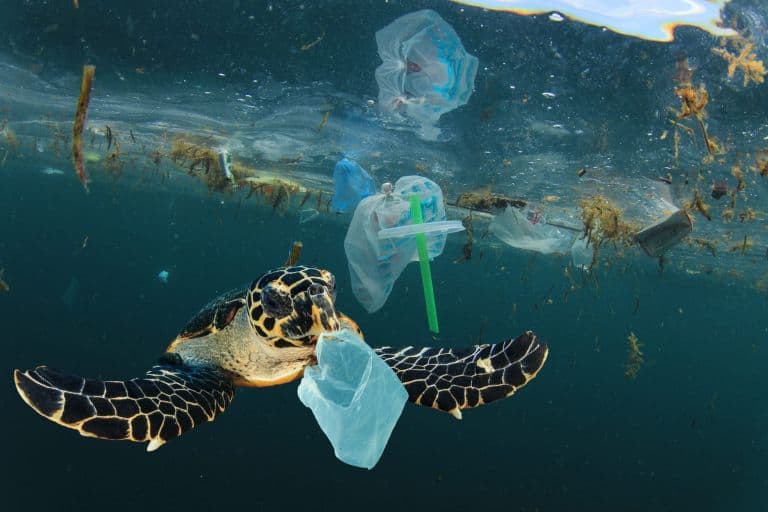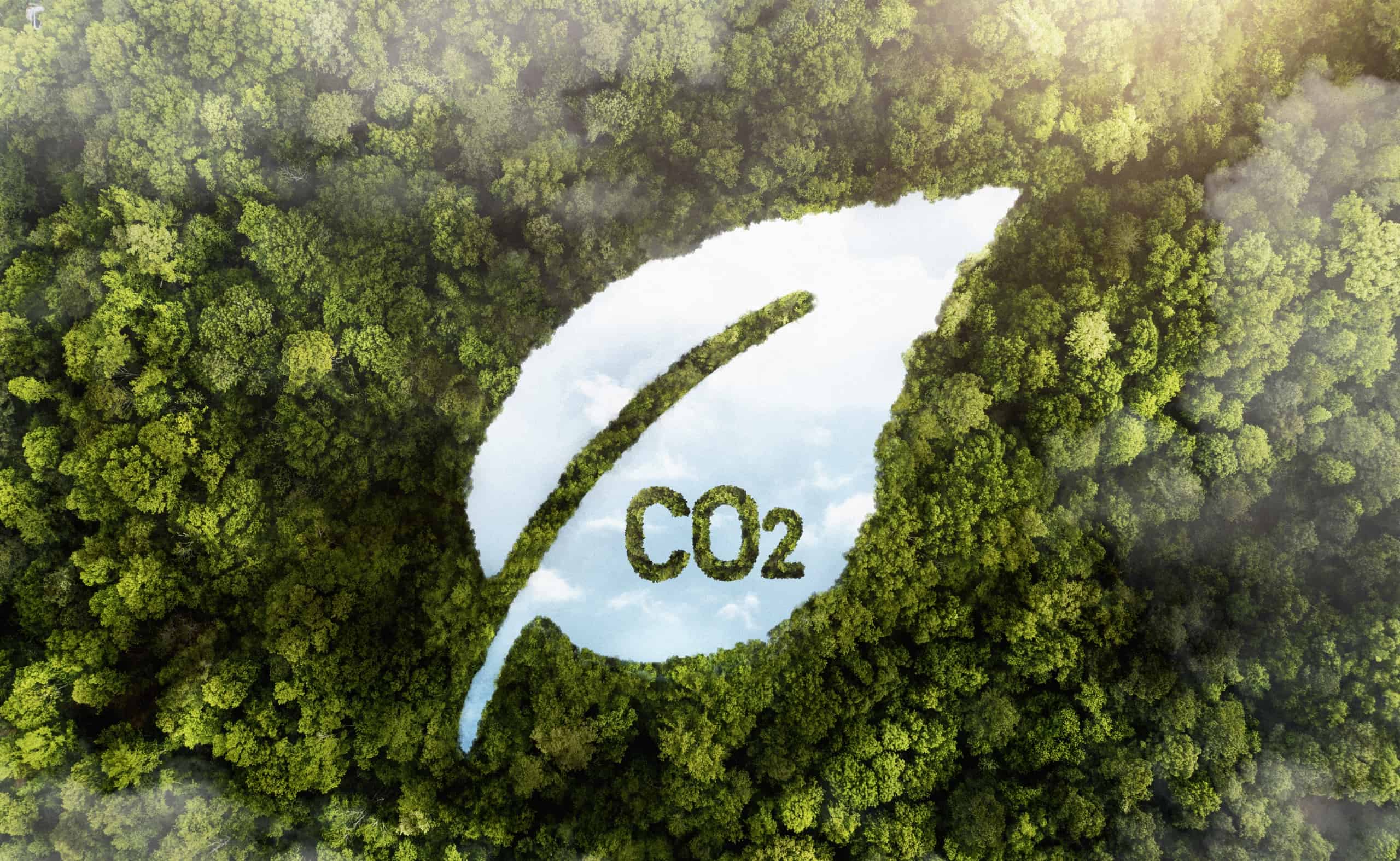#1: Preserving Natural Resources
A key component of sustainability in the production of wet wipes is the preservation of natural resources, which includes a range of tactics and procedures meant to reduce resource consumption and environmental effects. Let’s examine important steps to accomplish this aim and dig further into the significance of protecting natural resources in the context of the production of wet wipes:
- Water conservation: Water is a crucial resource in the wet wipes manufacturing process. It is used for processing, cleaning of raw materials, and other manufacturing procedures. However, traditional industrial methods are often inefficient, resulting in excessive water wastage. To conserve water supplies, wet wipes manufacturers can adopt water-saving technologies such as filtration, reverse osmosis, and closed-loop water recycling systems. By recycling and reusing water within the manufacturing plant, wet wipes manufacturers can reduce water usage, minimize wastewater output, and alleviate the pressure on freshwater supplies.
- Energy Efficiency: Energy conservation is crucial in the manufacture of wet wipes due to the negative impact of energy-intensive production methods on the environment. These methods lead to greenhouse gas emissions and resource depletion. To reduce energy consumption, wet wipes manufacturers may use modern, energy-efficient machinery and equipment, optimize their wet wipes manufacturing processes, and install energy management systems to monitor and regulate energy use. When renewable energy sources such as biomass, solar, and wind are used instead of fossil fuels, the production of wet wipes has less of an environmental impact.
- Raw Material Optimisation: The choice and use of raw materials have a significant impact on resource conservation and environmental sustainability. Traditional wet wipe formulas often contain substances that are harmful to the environment and non-renewable resources, which exacerbate resource depletion and ecological deterioration. To reduce the environmental impact of wet wipe production, wet wipes manufacturers can use sustainable alternatives such as plant-based extracts, organic cotton, and biodegradable fibers. By prioritizing materials that are sustainably sourced and renewable, wet wipes manufacturers can reduce their dependence on scarce resources, generate less waste, and support ecological balance.
- Waste Reduction: The manufacture of wet wipes causes a significant amount of waste, both during production and disposal. This waste is a result of inefficient industrial practices, faulty products, and excessive packaging. To address this issue, wet wipes manufacturers can implement waste reduction solutions such as lean manufacturing concepts, process optimization, and material recycling efforts. Additionally, using biodegradable and compostable packaging materials can make it easier to dispose of wet wipes in an eco-friendly manner, reducing the environmental impact of these products.
- Lifetime Assessment: Wet wipes manufacturers can assess the environmental impact of their production process from beginning to end by conducting a comprehensive life cycle assessment. This assessment involves analyzing the use of resources, energy consumption, waste generation, and emissions throughout the life cycle of the product. By identifying areas for improvement, wet wipes manufacturers can launch sustainability programs focused on reducing resource consumption and minimizing environmental impact. Life cycle assessment provides valuable information on the environmental hotspots associated with the production of wet wipes, which can guide decision-making processes and drive ongoing improvement initiatives.
In conclusion, preserving natural resources is essential for promoting sustainability and environmental stewardship in wet wipes manufacturing. By adopting water conservation measures, improving energy efficiency, optimizing raw material usage, reducing waste generation, and conducting lifecycle assessments, wet wipes manufacturers can minimize their ecological footprint and contribute to a more sustainable and resilient future. Embracing sustainable practices not only benefits the environment but also enhances brand reputation, fosters consumer trust, and drives long-term business success. As custodians of the planet, let us prioritize resource conservation and work collaboratively towards a greener, more sustainable world for present and future generations.
#2: Reducing Plastic Solution
Promoting environmental responsibility in the production of wet wipes requires cutting down on plastic use and looking for sustainable substitutes. Ecosystems, marine life, and human health are all seriously threatened by plastic pollution, which emphasizes the urgent need for creative ways to reduce the amount of plastic used in the manufacture of wet wipes. Let’s discuss the significance of using less plastic and go into more detail about sustainable alternatives:
- Biodegradable Materials: Biodegradable materials offer a sustainable alternative to conventional plastic for packaging wet wipes. These materials naturally decompose over time, reducing the impact of plastic pollution on the environment. Examples of biodegradable choices include compostable materials that break down into organic matter under certain circumstances and plant-based polymers such as PLA (polylactic acid), which are made from renewable resources like corn starch or sugarcane. By switching to biodegradable packaging materials, wet wipes manufacturers can reduce the amount of plastic waste that ends up in landfills and the ocean, thus reducing the negative impact on the environment and helping to create a circular economy.
- Compostable Packaging: Compared to traditional plastic packaging, compostable packaging offers a more eco-friendly option for end-of-life disposal. Films made of paper or cellulose, which can be composted, can be disposed of in composting facilities without producing any hazardous byproducts. Compostable packaging not only helps to reduce plastic pollution but also improves soil quality and encourages the diversion of organic waste from landfills. Wet wipes manufacturers can support the circular economy and contribute to creating a more sustainable waste management system by opting for biodegradable packaging solutions.
- Recyclable Packaging: A practical way to reduce the use of plastic and encourage the conservation of resources is by designing wet wipes packaging that can be recycled. Recycling facilities can collect and process recyclable materials such as polyethylene terephthalate (PET) and high-density polyethylene (HDPE) to create new products, which ultimately reduces the need for virgin plastic production. To maximize material recovery and streamline the recycling process, wet wipes manufacturers can collaborate with recycling partners and invest in recyclable package designs. By promoting closed-loop recycling solutions, wet wipes manufacturers can reduce the environmental impact of plastic packaging and contribute to a circular economy.
- Minimalist container: It is possible to significantly reduce the amount of plastic used in the production of wet wipes by simplifying the container design and minimizing unnecessary packaging materials. Minimalist packaging techniques prioritize reducing extra layers, parts, and decorations to minimize material waste. Wet wipes manufacturers can explore lightweight packaging options like resealable lids or thin-film pouches to reduce plastic usage without compromising the quality and functionality of their products. By prioritizing minimalist packaging designs, wet wipes manufacturers can improve packaging efficiency, lower manufacturing costs, and reduce their environmental impact.
- Customer Education: To encourage eco-friendly shopping practices and influence behavior, it is essential to educate customers about the importance of reducing plastic use and making sustainable packaging decisions. Wet wipes manufacturers can play a crucial role in this by openly sharing their sustainability programs, highlighting the benefits of recyclable, biodegradable, and compostable packaging solutions, and guiding appropriate disposal methods. By equipping customers with information and promoting eco-conscious purchase decisions, wet wipes manufacturers can foster an environment-conscious culture and collective action to address plastic pollution.
To reduce the amount of plastic used in the production of wet wipes, we need a comprehensive strategy that involves a range of efforts. This includes the development of innovative packaging ideas, collaboration with recycling partners, educating consumers, and committing to sustainability. Wet wipes manufacturers can help reduce plastic pollution and lessen their environmental impact by adopting packaging options that are recyclable, compostable, and biodegradable. As responsible stewards of the environment, let’s make plastic reduction our top priority and work together to create a cleaner, healthier planet for future generations.
#3: Minimizing Carbon Footprint
Reducing the carbon footprint is essential for encouraging sustainability in the production of wet wipes since greenhouse gas emissions fuel climate change and environmental deterioration. Wet wipes manufacturers can help the global effort to tackle climate change by reducing their environmental effects and embracing cleaner wet wipes manufacturing processes and carbon reduction initiatives. Let’s examine important steps to accomplish this aim and dig further into the significance of reducing carbon footprint in the production of wet wipes:
- Energy Efficiency: The process of manufacturing wet wipes involves energy-intensive procedures that can result in significant carbon emissions. Wet wipes manufacturers can reduce their operating costs, increase competitiveness, and lower their carbon footprint by adopting energy-efficient practices. This can be achieved through the use of modern machinery and equipment with better efficiency ratings, optimization of industrial processes to minimize energy consumption, and the implementation of energy management systems to monitor and regulate energy usage. Renewable energy sources such as solar, wind, and biomass can also provide sustainable alternatives to fossil fuels, helping to reduce the carbon emissions associated with energy production.
- Optimized Transportation: The transportation of goods contributes to carbon emissions through fuel usage and vehicle emissions. To reduce their carbon footprint, wet wipes manufacturers can improve their supply chain management and logistics procedures. This involves grouping shipments to reduce the number of trips, using vehicles and modes of transportation that consume less fuel, and considering alternative transportation methods such as rail or sea freight. Wet wipes manufacturers can prioritize efficient transportation methods to minimize the environmental impact of their supply chain and reduce carbon emissions.
- Lifecycle Assessment: Wet wipes manufacturers can evaluate the environmental impact of their products from the extraction of raw materials to the disposal of the product by conducting a lifecycle assessment. By doing this, they can identify areas where they can reduce carbon emissions and improve environmental performance. The assessment should consider emissions related to resource extraction, manufacturing, transportation, and waste management. Through this process, wet wipes manufacturers can gain valuable insights into the environmental hotspots associated with the production of wet wipes, which can then be used to make informed decisions and support continuous improvement efforts to reduce their carbon footprint.
- Adoption of Renewable Energy: Transitioning to renewable energy is a crucial strategy for reducing the carbon footprint associated with the production of wet wipes. Renewable energy sources like solar photovoltaic, wind turbines, and biomass boilers provide clean and sustainable energy options that significantly decrease carbon emissions related to energy production, compared to fossil fuels. To offset carbon emissions from electricity use, wet wipes manufacturers may obtain renewable energy credits or invest in on-site renewable energy installations. By adopting renewable energy alternatives, wet wipes manufacturers can reduce their dependence on fossil fuels, decrease greenhouse gas emissions, and contribute to the creation of a low-carbon economy.
- Carbon Offsetting: Wet wipes manufacturers can reduce their carbon footprint by funding initiatives that lower or eliminate carbon emissions from the environment. These initiatives may include methane collection, renewable energy installations, afforestation, and reforestation efforts, among others. To efficiently offset their carbon emissions and contribute to climate change programs, wet wipes manufacturers can invest in certified carbon offset projects or purchase carbon credits. By participating in carbon offsetting, wet wipes manufacturers can take responsibility for their carbon emissions and support international efforts to mitigate climate change.
In conclusion, reducing the carbon footprint associated with the production of wet wipes is critical to advancing environmental sustainability and halting global warming. Wet wipes manufacturers have the power to drastically cut their carbon emissions and have a positive impact on the environment by embracing renewable energy sources, streamlining transportation, using energy-efficient techniques, investing in carbon offsetting programs, and doing lifecycle assessments. Let’s prioritize reducing carbon emissions as environmental stewards and cooperate to create a more resilient and sustainable Earth for coming generations.
#4: Promoting Corporate Responsibility
Wet wipes manufacturers have a responsibility to promote corporate ethics, environmental protection, and social impact. Corporate responsibility encompasses a range of initiatives aimed at creating value for stakeholders while minimizing negative impacts on the environment and society. In order to achieve this goal, it is important to take significant steps and explore the importance of promoting corporate responsibility in the production of wet wipes.
- Environmental Sustainability: Companies that produce wet wipes have a responsibility to adopt sustainable practices to minimize their impact on the environment. Sustainable wet wipes manufacturing methods such as energy efficiency, waste reduction, and resource conservation can help reduce the negative effects on ecosystems and natural resources. This involves investing in clean energy sources, optimizing industrial processes to minimize waste, and using eco-friendly materials and packaging. By prioritizing environmental sustainability, wet wipes manufacturers can demonstrate their commitment to preserving the environment and promoting an environmentally conscious society.
- Product Safety and Quality: It is crucial for corporate responsibility to guarantee the safety and caliber of wet wipes goods. To ensure the safety and effectiveness of their goods, wet wipes manufacturers must abide by strict quality control standards, legal obligations, and industry best practices. This entails carrying out thorough product testing, abiding by GMP (Good Production Practices), and upholding stringent quality control procedures all along the production process. Wet wipes manufacturers may preserve public health and well-being by fostering customer trust and confidence by putting a high priority on product safety and quality.
- Supply Chain Management and Ethical Sourcing: To maintain corporate responsibility in the wet wipes industry, it is important to promote ethical supply chain management and sourcing techniques. This means upholding human rights norms, ensuring ethical labor practices, and encouraging responsibility and transparency throughout the supply chain. To achieve this, wet wipes manufacturers can establish supplier codes of conduct, conduct supplier audits, and work with socially conscious suppliers. By encouraging ethical sourcing methods, wet wipes manufacturers can also support sustainable development objectives and uphold company values.
- Community Involvement and Philanthropy: Corporate responsibility is a crucial aspect for wet wipes manufacturers, and it involves community involvement and charitable contributions. This includes funding philanthropic causes, participating in social welfare initiatives, which can improve the standard of living and meet community needs, and investing in community development projects. By actively participating in charity and community outreach programs, wet wipes manufacturers can demonstrate their commitment to social responsibility and have a positive impact on the communities they serve. This, in turn, helps to increase goodwill, strengthen stakeholder connections, and enhance brand reputation.
- Accountability and openness: To build credibility and trust with stakeholders, wet wipes manufacturers need to prioritize accountability and openness. This involves being transparent about their environmental performance, social impact, and corporate responsibility activities. To achieve this, wet wipes manufacturers should release sustainability reports, make their social and environmental performance measures public, and engage with stakeholders to resolve issues and gather feedback. By maintaining accountability and openness in their business practices, wet wipes manufacturers can establish long-term trust and loyalty among customers, investors, and other stakeholders.
To sum up, encouraging corporate responsibility in the wet wipes industry is critical to maintaining moral principles, safeguarding the environment, and generating value that benefits all parties involved. Wet wipes manufacturers can show their dedication to ethical business practices and help create a more sustainable and equitable future by embracing environmental sustainability, guaranteeing product safety and quality, encouraging ethical sourcing practices, interacting with communities, and upholding transparency and accountability. As the industry’s stewards, let’s give corporate responsibility programs top priority and cooperate to promote progress and have a significant influence on the environment and society.
#5: Meeting Consumer Expectations
To succeed in the wet wipes manufacturing business, it is crucial to understand and cater to customer preferences and demands. This is because consumer expectations drive product innovation, market competitiveness, and brand loyalty. Therefore, it is important to comprehend and attend to the wants, preferences, and worries of your consumers to stay ahead of the competition and build lasting connections with clients. In this regard, let’s explore some important strategies to meet customer expectations in the production of wet wipes and delve into the significance of doing so.
- Product Performance and Quality: Wet wipes are an essential product for customers who rely on them for efficiency, convenience, and cleanliness. To meet customer expectations, wet wipe manufacturers need to ensure the quality and performance of their products. They can achieve this by adhering to strict quality control guidelines, conducting thorough product testing, and using premium materials and chemicals. By consistently producing high-quality wet wipes that meet customer requirements, wet wipes manufacturers can earn customer trust and loyalty. This, in turn, can lead to repeat business and a positive brand reputation.
- Variety & Customisation: There is a diverse range of consumer preferences when it comes to wet wipes, including fragrances and specialty formulas that cater to specific demands such as antibacterial qualities or sensitive skin. To meet the expectations of a wide range of customers, wet wipes manufacturers need to provide a comprehensive range of wet wipes options and customization possibilities. This may involve creating various types of wipes, such as hypoallergenic options, scented and unscented wipes, and wipes for specific uses, such as cleaning the home, personal hygiene, or caring for infants. By offering customization options that meet individual requirements and preferences, wet wipes manufacturers can boost customer satisfaction and loyalty.
- Sustainability and Eco-Friendliness: As customers become more aware of environmental issues, they are placing greater importance on sustainability when deciding what products to purchase. In order to meet these expectations, wet wipes manufacturers must adopt sustainable practices throughout the entire product life cycle, from sourcing raw materials to packaging and disposal. This involves using environmentally friendly manufacturing techniques, reducing packaging waste, minimizing carbon emissions, and incorporating biodegradable materials. Wet wipes manufactueres can appeal to environmentally conscious customers and differentiate themselves in the market by providing sustainable wet wipe solutions and actively promoting environmental initiatives.
- Transparency and Ingredient Disclosure: Customers are increasingly demanding transparency from wet wipes producers about the substances used in their products, coupled with a greater emphasis on the quality and safety of the ingredients used in these products. To meet these expectations, wet wipes manufacturers need to address safety concerns, provide clear and concise information about what goes into their products, and avoid using potentially harmful or controversial compounds such as phthalates, parabens, and synthetic fragrances. Whenever possible, they should opt for natural and safe alternatives. By prioritizing ingredient safety and transparency, wet wipes manufacturers can build brand loyalty and establish a strong reputation for reliability and trustworthiness among their customers.
- Convenience and Packaging Design: Consumers’ preferences in the wet wipes industry are majorly influenced by convenience. Customers expect wet wipes to be easy to use, portable and come in compact packaging for on-the-go usage. Wet wipes manufacturers need to invest in innovative package designs and features that enhance convenience and user experience to meet customer expectations. This includes options for travel-friendly packaging, single-use packaging, and resealable packaging. Wet wipes manufacturers can cater to consumers’ need for portability and ease of use by prioritizing user-friendly design and convenience. This will lead to increased customer satisfaction and brand loyalty.
Wet wipes manufacturers must prioritize meeting customer expectations in order to succeed. This can be accomplished through a focus on product quality and performance, offering a range of options to cater to different preferences, and emphasizing sustainability and eco-friendliness. Transparency in disclosing ingredients and improving packaging design and convenience can also help to build strong customer relationships. To remain competitive in the market, producers must stay up-to-date with the latest trends and changing customer expectations.






